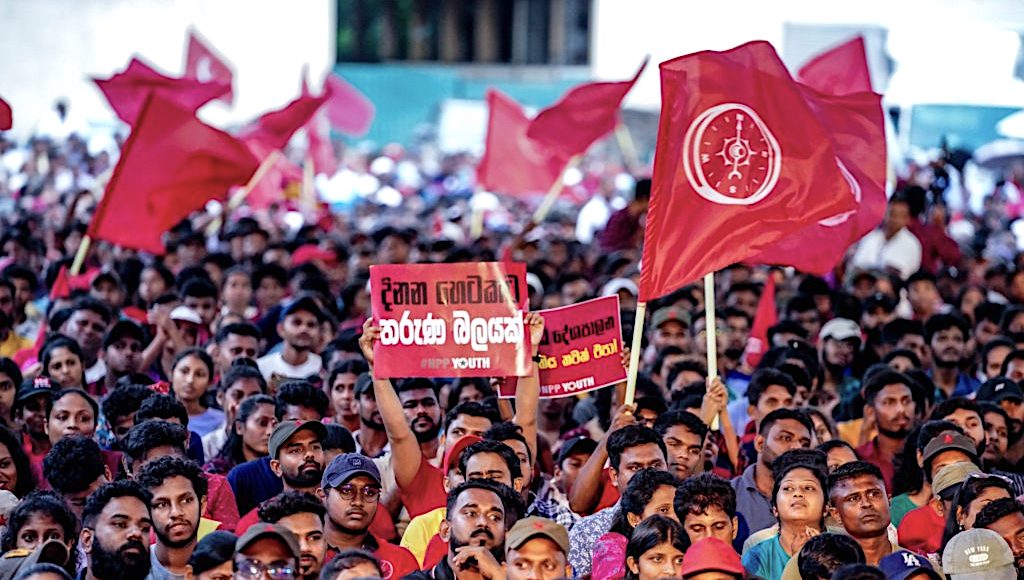2024 Sri Lankan Parliamentary Election: A Historic Shift and a Blow to Indian Influence over Sri Lanka
Unprecedented National Unity Behind NPP
For the first time in Sri Lanka’s electoral history, a single party-the NPP-secured overwhelming support across the entire country, including both the Sinhala majority and the Tamil majority regions. The Tamil-majority Northern and Eastern provinces, which had traditionally voted for ethnic Tamil parties or candidates aligned with Indian interests, overwhelmingly backed the NPP.
 |
| 2024 Parliamentary Election Results |
This unprecedented unity gave the NPP a commanding two-thirds majority in Parliament, empowering it to pursue broad reforms and a new national agenda.
India’s Historical Role in Tamil Politics and Interference
India’s involvement in Sri Lanka’s ethnic conflict and politics has been deep-rooted and fraught with controversy.
Beginning in the early 1980s, India’s intelligence agency, the Research and Analysis Wing (RAW), covertly supported Tamil militant-terrorist groups-including the Liberation Tigers of Tamil Eelam (LTTE)-by providing arms, training, and funding.
This intervention aimed to pressure the Sri Lankan government but ultimately fueled decades of civil war and instability.
India’s influence over the Tamil minority was bolstered by linguistic and cultural ties with Tamil Nadu, enabling New Delhi to exert disproportionate sway over Tamil political behavior in Sri Lanka.
Over the years, India repeatedly exploited ethnic divisions-between Sinhalese, Tamils, and Muslims to maintain leverage in Sri Lanka’s internal affairs. This included meddling in multiple elections, attempting to direct Tamil votes toward candidates favorable to Indian strategic interests, often at the expense of Sri Lankan sovereignty.
Failed Attempts to Control Tamil Votes in 2024
In the 2024 parliamentary election, Indian intelligence and diplomatic efforts to manipulate Tamil voters were evident. Reports indicate that RAW operatives and Indian diplomats in Colombo actively campaigned to secure Tamil votes for pro-India candidates, possibly Sajith Premadasa or Ranil Wickremesinghe.
Despite these efforts, the Tamil electorate decisively rejected this interference, instead rallying behind the NPP, which campaigned on a platform of national unity and economic reform, free from external influence.
This electoral outcome exposed the limitations of India’s traditional divide-and-rule tactics. By losing control over the Tamil vote, India suffered a major blow to its political leverage in Sri Lanka, undermining decades of interference that had fueled ethnic discord and instability.
The End of an Era of Manipulation
India’s historical interventions-including the infamous Indian Peace Keeping Force (IPKF) deployment in the late 1980s, which resulted in thousands of deaths and widespread resentment-have long left a bitter legacy in Sri Lanka.
The 2024 election results signal a rejection of such external meddling and a collective desire among Sri Lankans to move beyond ethnic divisions and foreign interference.
The NPP’s success in uniting diverse ethnic groups under a common political banner challenges India’s entrenched strategy of exploiting ethnic fault lines. This election not only reshapes Sri Lanka’s internal politics but also calls for a fundamental reassessment of India’s role in the region.
Respecting Sovereignty and Moving Forward
The 2024 parliamentary election was a decisive moment affirming Sri Lanka’s sovereignty and the agency of its people.
It exposed the failures of Indian intelligence and diplomatic efforts to control Sri Lanka’s political destiny through the Tamil minority. Moving forward, India must acknowledge the damage caused by its decades-long interference and respect Sri Lanka’s right to self-determination without covert manipulation.

Comments
Post a Comment